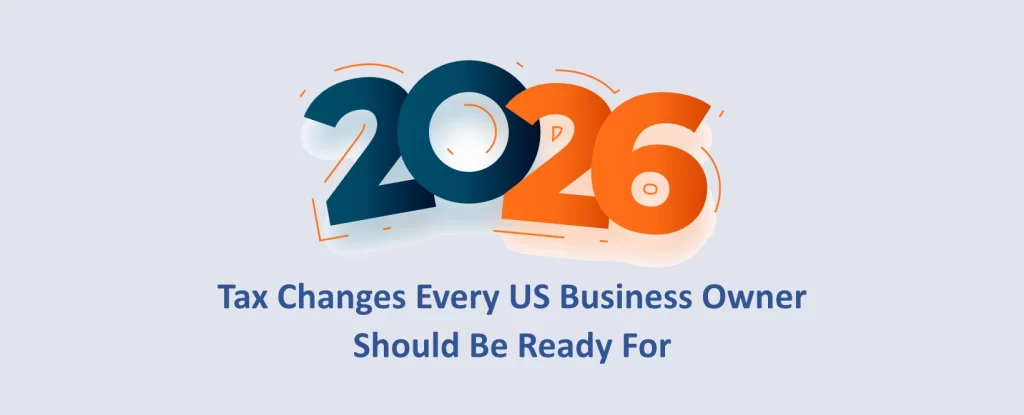Who doesn’t find filing tax returns a daunting task? We decode penalty clauses for you and help you avoid or reduce tax penalties.
More than half of all penalties imposed are for not paying taxes on time. But hold on. Even if you do pay taxes on time, but have missed a tax filing deadline, you can still receive a penalty notice.
Why might I receive a penalty?
Here are some reasons why the IRS might send you a penalty notice.
- You have failed to pay your taxes on time
- You have missed a filing deadline
- You have furnished incorrect information in your tax return, either concerning your personal information or your income
- You have applied for a refund or credit erroneously
- You have paid an incorrect tax amount
- A check you issued to the IRS has bounced
There are several reasons why you may be asked to pay a penalty, but these are some of the most common ones.
But wait, all is not lost. There are ways in which you can legally avoid or reduce tax penalties. In this article, we simplify complex tax laws and help you understand what you need to do to reduce your tax liabilities.
Before we dive into the remedial actions for reducing tax, let’s take a minute to understand the most common reasons why you might be asked to pay a penalty.
Failure to Pay
The IRS usually requires you to pay the tax by the April deadline. When you fail to meet this deadline, the IRS can levy a penalty. This penalty is usually 0.5% of the tax you owe per month or part of a month, but it also caps at 25% of the tax due. One way to minimize your penalty is to ensure that you pay your tax in full by the April deadline, even if you request an extension.
Failure to File
The Failure to File penalty applies if you don’t file your tax return by the due date. The Failure to File penalty is 5% of the unpaid taxes for each month or part of a month that a tax return is late. However, the penalty won’t exceed 25% of unpaid taxes.
If both the late filing and late payment penalty apply to a particular month, the late filing penalty is reduced to 4.5%, so the maximum penalty is 5% pm.
Failure to pay proper estimated tax
The IRS expects that you will pay taxes throughout the year, rather than at the end of the year as a lump sum. To facilitate this, it sets quarterly deadlines (April, June, September, and January). You can calculate tax and adjust the amount deducted from your paycheck as you go to help reduce your penalty.
The requirements are that you pay:
- 90% of the tax you owe for the current year. Estimate what you’ll owe and pay at least 90% of this amount by making timely quarterly estimated tax payments or through paycheck withholding.
- 100% (or 110%) of last year’s tax bill. Pay 100% of the tax shown on your prior-year tax return before applying estimated payments, withholding, or refundable tax credits. If your adjusted gross income is more than $150,000 (or $75,000 if you’re married and file a separate return from your spouse), the safe harbor is 110% of your prior-year tax.
Dishonored check
If you issue a check to the IRS and you do not have enough money in your checking account, the bank will dishonor or “bounce” your check. The IRS charges a penalty
| Bad Check Amount | Penalty |
| Less than $1,250 | The payment amount of $25, whichever is less |
| $1,250 or more | 2% of the payment amount |
A simple way to reduce your penalty is to ensure that your checking account is adequately funded when you issue a check to the IRS.
How do I avoid or reduce tax penalties?
The IRS itself offers some legal ways to reduce your tax penalties. Let’s take a look at three basic scenarios in which the IRS might agree to reduce your penalties.
First-time abate or administrative waiver
Are you usually on top of your tax filing responsibilities? Even the most meticulous tax filers miss deadlines sometimes. If this sounds like you, you can file a request for first-time abate. To qualify, you must have filed all your returns, paid your taxes on time, and have no prior penalties for the last three years.
Reasonable clause
Sometimes, you might fail to pay taxes on time or make an incorrect payment due to a wide range of reasons. The IRS allows you to cite some of these as “reasonable clauses” and request a penalty waiver. Some valid reasons for filing an exemption on a reasonable clause basis are:
- You are affected by any sort of natural disaster or civil unrest
- You are unable to get records
- If you have suffered serious disability or severe illness
- If you have suffered the loss of an immediate family member or they have suffered serious illness
- If there are any technical issues that prevented the payment of taxes on time
Statutory exceptions
In very rare cases, the IRS also provides statutory exceptions under a certain set of circumstances. If you fall under any of these categories, you can request a reduction/removal of penalties.
- If you have received incorrect advice from the IRS and have documentation to prove that the tax calculated by it is incorrect
- If you have mailed a return on time but was received late due to postal delays
- If you lived in an area that was declared a “Federal Disaster Area”
- If you served in a combat zone during the period for which the tax payment was delayed/unpaid
So, here you are! These are some of the common reasons why you might receive a tax notice from the IRS along with the ways to avoid or prevent it.
Whether you are an entrepreneur, a small business owner, or an individual taxpayer, staying on top of your taxes is not easy. Seek help from our seasoned tax experts and we can guide you step by step. We can help you calculate and file your taxes as well as provide personalized strategies to minimize your liabilities. Reach out to us today for expert help.


